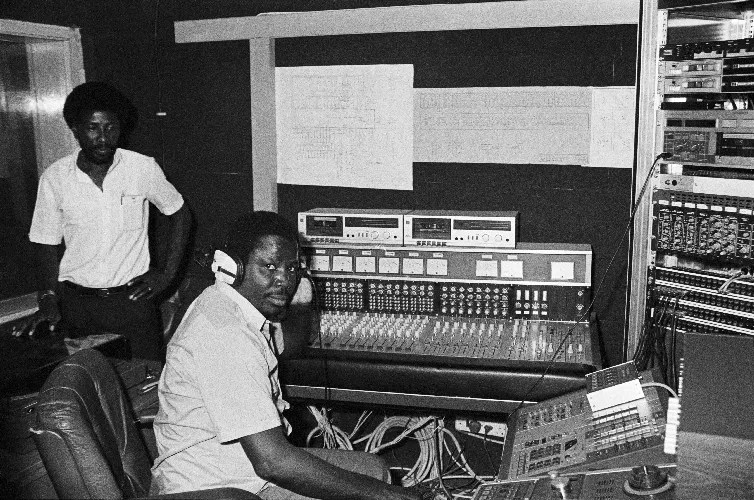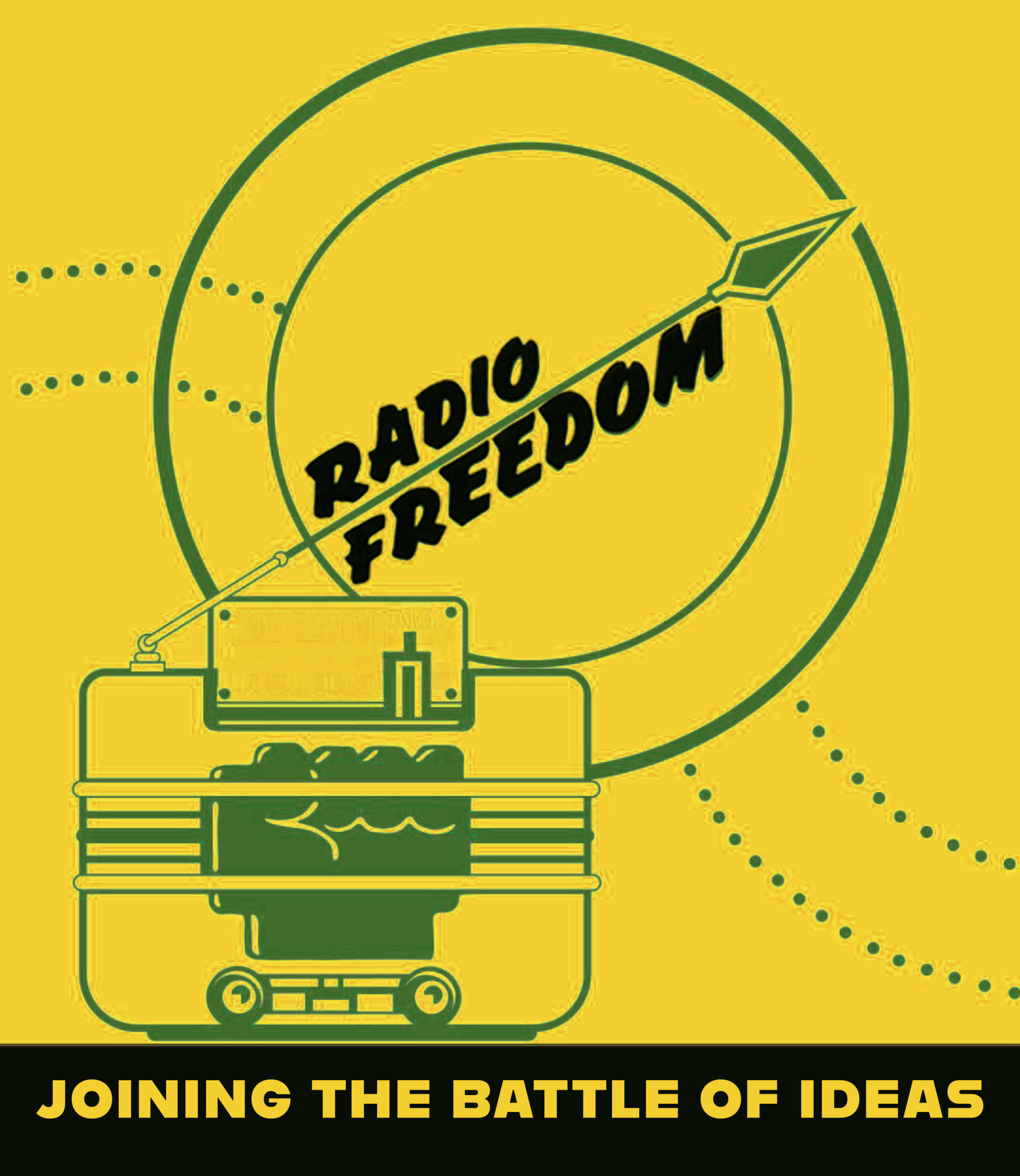Radio Freedom is being revived to counter what it perceives as a “massive onslaught by the forces of counter-revolution” against South Africa’s National Democratic Revolution (NDR) and the Developmental State. Drawing on its history as the voice of the ANC and Umkhonto we Sizwe during the liberation struggle, its current mission is to expose “lies and distortions” about the NDR, highlight the “lived experience” of South Africans, and actively engage in the “battle of ideas” to defend the democratic state and combat systemic inequality.
Thami Ntenteni’s research and presentation outlines the context of perceived counter-revolutionary activities, defines the concept of the battle of ideas, emphasizes the historical legacy of apartheid and colonialism as the root of present challenges, and provides factual evidence of ongoing inequality. It positions Radio Freedom as a platform for truth and critical analysis, aiming to promote a unified national vision and counter misinformation, particularly that which fuels narratives of victimhood among the economically privileged.
Key Themes and Important Ideas/Facts:
1. The Perceived Threat of Counter-Revolution:
- Core Argument: Radio Freedom is founded on the belief that concerning developments in South Africa’s political landscape, while appearing as democratic functions, are in fact “counter-revolutionary activities aimed at undermining the authority of the state.”
- Manifestations of Counter-Revolution: These are identified as:
- Legal challenges used to settle political disputes.
- “Self-styled and self-appointed individuals purporting to represent certain group interests.”
- Internal corruption within state organs.
- The “weakening or the hollowing out of state institutions,” leading to a decline in public trust and the state’s ability to govern effectively.
- Consequences of Undermining State Authority: This is seen as an “incremental, planned and orchestrated” process with the end goal of creating a “weakened State” with reduced capacity to enforce laws, leading to criminal activity, inability to maintain infrastructure, economic instability, social unrest, and the rise of “champions” promoting narratives that “further erode the ideals of our democratic dispensation.”
2. The Revival of Radio Freedom and its Historical Context:





- Historical Role: Radio Freedom is presented as having a significant history as the “Voice of the African National Congress (ANC) and Umkhonto we Sizwe” during the liberation struggle. It served as an “instrument of social mobilization” and a “clarion call to make South Africa Ungovernable and Apartheid unworkable.”
- Involvement in the “Battle of Ideas” during Apartheid: It played a crucial role in the “battle of ideas – to inspire – to instil hope and courage – to convince the people about the inevitable victory of the struggle for liberation.”
- Current Purpose: Radio Freedom is being “recalled to once again defend the National Democratic Revolution (NDR) against what it perceives as a massive onslaught by the forces of counter-revolution.”
- Mission Statement: The mission is “To expose lies and distortions about the aims and objectives of the NDR and the Developmental State, and to tell the ‘lived experience’ of the South African situation, including the legacy of apartheid.”
3. The “Battle of Ideas” as a Central Concept:
- Definition: Thami Ntenteni’s research and presentation defines the “battle of ideas” in politics as a “confrontation between the ideologies that nations and political groups deploy to promote their domestic and foreign interests.” It is a “battle to occupy a favourable and/or sympathetic space in the public mind.”
- Objective: The objective is to “promote certain ideas over and above others” through various communication platforms.
- Nature of the Conflict: It is described as a “clash of visions, concepts, and images,” often involving “hostile intentions or hostile acts,” even if physical violence is minimal.
4. The Enduring Legacy of Apartheid and Colonialism:
- Historical Context is Crucial: Understanding the “historical genesis of South Africa’s challenges is crucial.”
- Professor Sampie Terreblanche’s Insights: The document heavily references Professor Sampie Terreblanche, quoting Jacques Depelchin: “A radical transformation in South Africa will depend more on how the past is remembered than on how the future is plotted.”
- Acknowledgement of Benefits and Victimization: Terreblanche’s work is used to emphasize the need for white South Africans to “acknowledge explicitly that they have benefited from colonialism, segregation and apartheid and that most Black South Africans have been victims of these systems…”
- Critique of Denial and Arrogance: The document critiques the “denial and unwarranted arrogance” that prevents acknowledgment of the “almost insoluble nature of the problems they have bequeathed to the democratically elected government.”
- Systemic Inequality: The “dual political – economic system of white political domination and racial capitalism” is identified as playing a “central role in creating these problems and causing such widespread social injustice.”
5. Countering Misinformation and Propaganda:
- Goebbels’s Principle: The document highlights Joseph Goebbels’s principle of repeating lies to create the “illusion of truth” as relevant to the current South African context.
- Examples of Propaganda: False accusations of genocide against white South Africans and the misrepresentation of land expropriation policies are cited as examples of distortions aimed at undermining the state’s legitimacy.
- Critique of AfriForum and Solidarity: Groups like AfriForum and Solidarity are accused of a “years long international campaign to paint white Afrikaners as an oppressed and endangered group,” which has found “fertile ground with Trump, Elon Musk and the Maga brigade.”
- Trump’s Executive Order: President Trump’s executive order is presented as an example of this misinformation campaign, described by DIRCO as lacking “factual accuracy and fails to recognise South Africa’s profound and painful history of colonialism and apartheid.”
6. Presenting Factual Evidence of Inequality:
- Focus on “Lived Experience”: Radio Freedom aims to “tell the lived experience of the South African situation which is inclusive of legacy that apartheid bequeathed on the democratic order.”
- Statistical Data: The document provides statistical data on:
- Income Inequality: Citing the World Bank, South Africa is the “most economically unequal country in the world.” Data shows significant disparities in average household income by race, with white-headed households earning significantly more than others.
- Executive Representation: White individuals “continue to dominate top management positions” (62.1% in 2023), while African South Africans are underrepresented (17.2%).
- Unemployment Rates: Black South Africans face the highest unemployment rates (37.6% in Q1 2024), significantly higher than white South Africans (7.9%).
- Countering False Narratives with Facts: This data is presented to counter narratives that deny the impact of apartheid and claim victimhood among the economically privileged.
7. The ANC’s Vision and the National Democratic Revolution (NDR):
- Reiterating the ANC’s Objectives: Radio Freedom seeks to reignite the spirit of the liberation struggle by reminding the audience of the ANC’s foundational objectives from “Ready to Govern” (1992):
- Political and economic self-determination.
- Overcoming the legacy of inequality and injustice.
- Developing a sustainable economy and state infrastructure.
- Promoting national unity and a common loyalty to the country.
- Defence of the NDR: The core mission is to defend the NDR against the forces of counter-revolution, which are seen as undermining the “capacity of the Developmental State to deliver on the objectives of the NDR which is to deal with legacy of POVERTY – INEQUALITY – UNEMPLOYMENT bequeathed on the Democratic State by Apartheid Colonialism.”
- Challenges to the NDR: The document acknowledges challenges including predictions of the ANC’s disintegration, the impact of the 2024 election results, and the formation of the Government of National Unity (GNU), raising questions about its ability to advance the NDR.
8. Promoting a Unified National Vision:
- Goal: To “cultivate a truly South African vision,” free from “prejudices and sectarianism.”
- Principles: Based on “equal rights, non- racialism, non-sexism, democracy and mutual respect.”
- Inclusivity: Emphasizing a “broad, inclusive approach, free of arrogance or complexes of superiority or inferiority.”
- Drawing on All South Africans: Relying on the “wisdom, life experiences, talents and know- how of all South Africans.”
9. Understanding the Terrain of the Intensifying Battle of Ideas:
- Manifestations: The battle of ideas is seen in pronouncements about the disintegration of the ANC and GNU, the distortion of the NDR, the narrative of a “receding / minimal state,” and the insistence by the DA on being an “equal partner of the GNU.”
- Sinister Hand of Counter-Revolution: The document explicitly points to the “sinister hand of counter-revolution” at play.
- Risk of Failed State: The document notes warnings of South Africa risking becoming a “failed state in the early 2030s,” based on research measuring state performance against security, governance, prosperity, and welfare.
Call to Action:
We are urging individuals to “Join the conversation! Engage with our content, share your perspectives, and stand with us in the battle of ideas to build a more informed and equitable South Africa.”
The ultimate goal is to “Let your voice be heard in defense of our democracy and the realization of a truly just future for all.”

Discover more from Radio Freedom
Subscribe to get the latest posts sent to your email.



